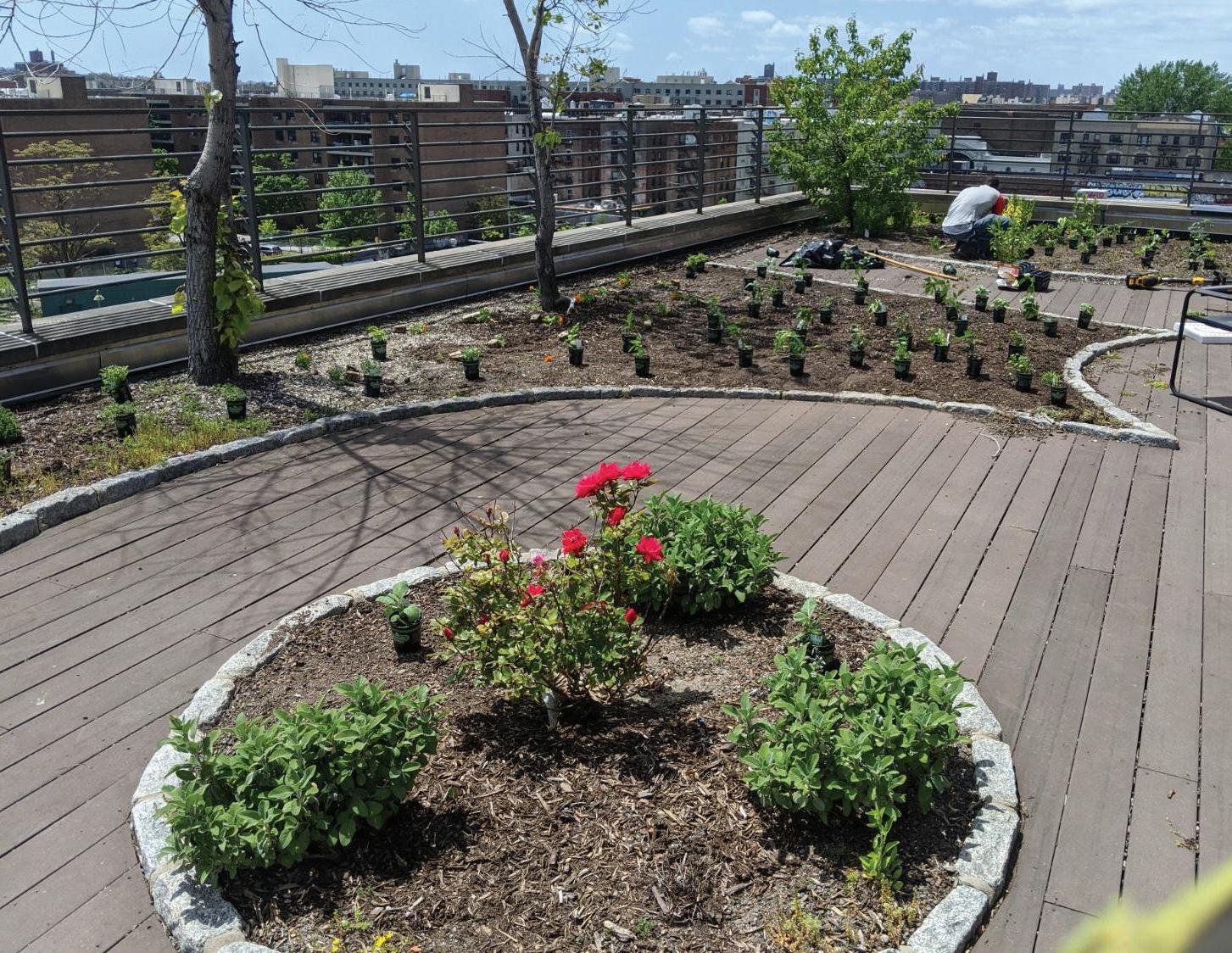
1 minute read
Urban Farms
With more than 50 urban farms and gardens covering approximately 15,700 square feet of growing space in the yards and on rooftops of our residences, S:US operates one of the largest urban agriculture initiatives in NYC. Urban Farms employs many of the people we serve who have developmental disabilities, and each year, also engages more than 500 people at the highest risk for homelessness, unemployment, and untreated medical, psychiatric, and substance use disorders. Participants gain employable skills, generate income, build self-esteem, and learn about and enjoy the nourishing benefits of eating fresh produce.
Since 2014, S:US Urban Farms has employed participants in landscaping services at S:US supportive housing sites, as well as external commercial and residential properties. Our vocational training curriculum focuses on general and specialized horticulture, including soil health and composting, plant identification, tree/plant maintenance, turf management, pest control, plant propagation, and produce preservation through canning. Workshops teach hard and soft skills to prepare individuals for community volunteerism and employment opportunities.
Advertisement
S:US Urban Farms is one of the few therapeutic horticulture services in the country to engage individuals with disabilities in beekeeping, and we include specialized horticultural knowledge like hydroponic growing and intensive permaculture planting practices as integrated parts to our operations. Participants aren’t just watering, weeding, and harvesting. They construct greenhouses, cold frames, arbors, raised beds, and sheds; and install water features, patios, and rooftop gardens. They are at the design table and behind the power tools as contributors on the full range of projects.
The farms and gardens at S:US grew 7,100 pounds of fruit, vegetables, and culinary herbs last season. The produce harvested from S:US Urban Farms is distributed among residents of S:US’ supportive housing sites free of charge, extending health and wellness benefits beyond those who work in the urban farms and gardens.








